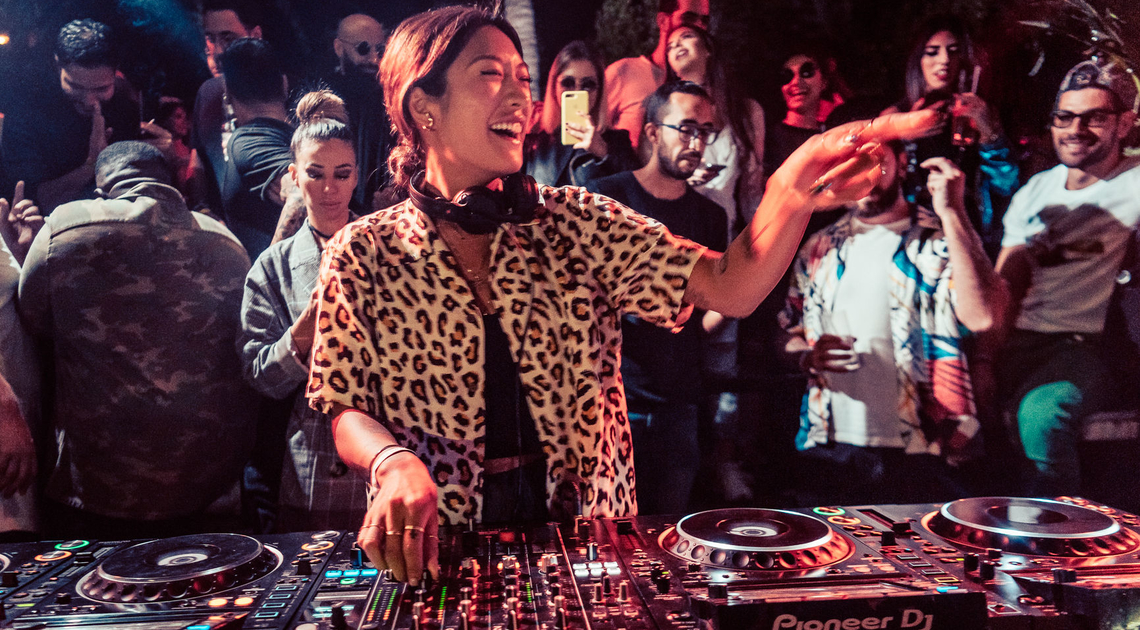Despite preaching a mantra of focusing on the present, the new generation continues to live in the past. Gen Z embodies the art of living in the moment while also being unapologetically obsessed with all things retro and vintage. As scrunchies and vinyl records started to resurface in the 2020s, one specific genre of music has recently made a major comeback alongside club culture: house music. The dramatic beat drops and various mixes by DJs have made this genre extremely popular with teens. Whether it’s for a houseparty or a strenuous cardio workout, a house music playlist seems to be a necessity, as it satisfies the ears of the current generation.
As the world evolved into different eras, dance music changed with it. The fluidity of music is apparent through the years. From Swing music in the ‘30s to the beginning of R&B in the ’60s, music morphs to fit human trends in different eras. The strong tie between music and culture shows not only the adaptability of music, but the imprint humans make on this global language composed of trebles and clefs. By the late 20th century), people were pushing past the piano and turning the page into the digital era. As technology became more advanced and vital in society, musicians learned how to apply the new devices to enhance their music. Disco got people dancing, and when disco’s popularity eventually died away, DJs wanted to find a way to keep people on their feet. That remedy was house music. House music stems from the underground clubs of New York City and Chicago. According to Icon Collective, house music was the reincarnation of disco. House music attracted the same diverse groups that disco did such as LGBTQ+ individuals, Latinos, and African Americans. For these communities, nightlife was an escape from the oppression they faced in the workplace and society in the early ’80s. The euphoria one experienced in this time was incomparable, as troubles were muffled out by the blaring EDM.
What makes house music so peculiar is its name. People may assume that it is similar to the other weirdly named micro-genre, elevator music. Elevator music is the go-to music you put on to avoid awkward silence, yet it never works. Elevator music is slow and drab and is considered to be equivalent to background noise, something you are meant to speak over. House music is the complete opposite. It’s loud, fast, and energetic, similar to a little kid experiencing a sugar high. So, what does the upbeat nature of house music have to do with the word “house”? Music Mil explains that the title originates from Chicago. The term “house” comes from the hot club Warehouse in Chicago, where the genre was first born. Others believe that house music was named after its simplicity because DJs were easily able to create house songs in their own home. The 120 beats per minutes and 4/4 rhyme was something that all DJs could mix in the comfort of their own homes by remixing their personal records.
The fad of house music has also spread to our very own school. With AirPods equipped at all times, it is evident that Tenafly High School students take music very seriously, but what are their thoughts on house music? Jordyn Gaitman (’25) claimed that house music is perfect for every occasion, from getting ready in the morning to studying for a test late at night. Gaitman avidly enjoys making playlists and recently created a house playlist because, she says, “it brings about happiness” in her day-to-day life. Zach Minkin (’25) also admitted his love for house music, as “‘Down Low’ by Dombreksy was one of [his] top played songs this year.”
House music has experienced a renaissance because of digital streaming. Setting the heated Apple Music vs. Spotify debate aside, both platforms allow hundreds of genres to fit in the palm of your hand. EDM is in the top 5 most popular genres globally in both 2023 and 2024, with pop taking the top spot. Teenagers are still too young to be exposed to the music in the club scene, but technology makes house music readily available. By blasting “Never Be Like You” by Flume in your AirPods Max, you too can feel as if you are dancing beside Jacob Elordi in the infamous Saltburn edit. As parents dance to the echoes of Peggy Gou coming from their basement while their son throws a high school party, it is apparent that music holds significance in our world today. While DJs long for their audience to hit the dance floor, they hunger for something more meaningful: human connection. Music doesn’t need its own Rosetta Stone to be understood; it is a global form of communication. And with the re-emergence of house music, people will be reminded of the power of music to bring communities together with its exciting rhythm.













































































































































